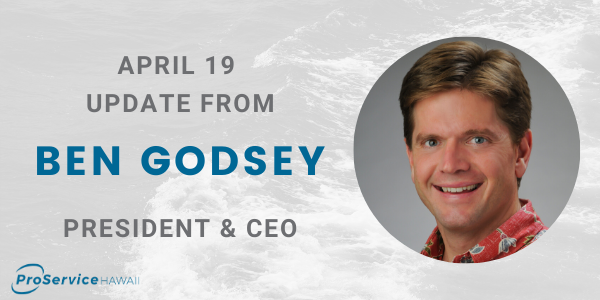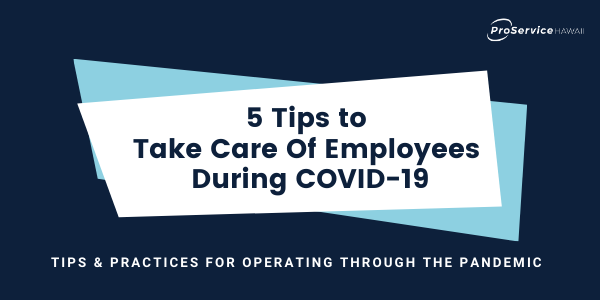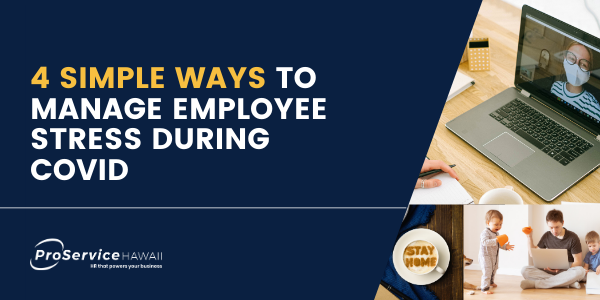4 Types of Insurance Every Employer Needs in Hawaii
Labor costs, which can be made up of wages, benefits, insurance, taxes, admin, and more, can account for up to 70% of your total business expenses. While many employers think there’s little they can do to reduce these costs, there are actually ways to take control. With this Real Cost Series, we put a magnifying glass on employer labor costs and break down powerful business strategies that can improve your bottom line without adding to your “to do” list.
Hawaii is consistently ranked among the top states in the country for quality of life, but it’s also among the most challenging places to do business. In fact, in its 2018 study, WalletHub ranked the Aloha State worst in the country for startups, in large part due to the high cost of doing business, which was ranked 43rd out of 50 states.
Beyond salaries and wages, there are other labor costs that can add to an employers’ bottom line. One factor companies must take into account if they want to do business in Hawaii is the state’s numerous insurance requirements for employers.
Let’s take a look at the four types of insurance that every employer should have in the State of Hawaii.
1. Health Insurance
Long before the Affordable Care Act made employer-provided health insurance mandatory nationwide, Hawaii was leading the way in requiring businesses to provide medical coverage to employees. In fact, the Hawaii Prepaid Health Care Act, which was passed in 1974, was the first law of its kind in the country.
Today, Hawaii businesses are required to provide health insurance to employees working more than 20 hours per week, with some exceptions (including seasonal farm workers, insurance or real estate agents working on commission, and some family businesses). Employers can fulfill their requirements by purchasing a plan through a health care partner, an insurance carrier licensed in the State of Hawaii, or by adopting an approved self-insurance health care plan.
2. Temporary Disability Insurance
In addition to health care, Hawaii is one of only five states that requires employers to carry Temporary Disability Insurance (TDI). TDI is a type of wage replacement coverage that pays an employee a portion of their normal wages if they are forced to take time off from their job due to a non-work-related illness or injury, including pregnancy. That means that if an employee is unable to work while they are receiving treatment for a chronic illness, or recovering from an injury that occurred on their day off, TDI provides coverage that partially reimburses them for their lost wages.
Hawaii’s TDI law, which was enacted in 1969, covers employees working 20 or more hours per week. It sets a minimum benefit of 58% of the employee’s average weekly wages, and kicks in starting on the eighth day of disability, lasting up to 26 weeks.
3. Workers’ Compensation Insurance
Along with TDI, Hawaii also requires all employers to purchase Workers’ Compensation Insurance, which adds an additional layer of wage replacement benefits for employees. This insurance pays for an employee’s lost wages and other costs if they are unable to work due to an injury on the job.
Workers’ Compensation Hawaii covers two-thirds of a disabled employee’s salary while they are unable to work, as well as any necessary medical treatment and vocational training if the employee meets requirements and is unable to resume their former job activities as a result of their injury. Workers can also receive permanent partial or total disability benefits if they are permanently disabled.
4. Employment Practices Liability Insurance
Although EPLI isn’t mandatory in Hawaii, more and more businesses are purchasing Employment Practices Liability Insurance, or EPLI, to protect themselves against potential lawsuits and claims made by their own employees. EPLI covers legal fees and other costs incurred when an employee files a workplace rights violation like discrimination, wrongful termination, or sexual harassment.
Covering Your Bases
Hawaii’s numerous insurance requirements and tough regulatory environment can make managing compliance and handling employee paperwork overwhelming, but it doesn’t have to be. There are things you can do to ease the compliance burden and even reduce business costs.
Familiarizing yourself with Hawaii’s different insurance requirements is a great first step. Looking for an HR partner to satisfy your insurance needs all in one place is also a step in the right direction—from health care coverage and EPLI, to Workers’ Compensation Insurance and TDI.
Not only can the right HR partner provide the benefits, coverage, and expertise you need to manage your business and employees well, some partners can also:
- Help lower your insurance premiums. How? By leveraging their large buying power to negotiate the best health care rates available, and by offering in-house Workers’ Compensation and TDI underwriting. This means you can provide employees with the best benefits that keep your business competitive while also saving money.
- Provide claims management expertise. Why does this matter? When an employee files a Workers’ Compensation or TDI claim, an HR partner can pick-up the work that would otherwise fall on your shoulders, from filling out the paperwork and processing the claim, to calling doctors on your behalf. They do the tedious work of keeping you compliant so you can focus on your core business.
- Minimize risk and prevent costly compliance issues. In just one year, Workers’ Compensation claims costed Hawaii businesses over $300,000,000. Safety training programs and mock audits can help you prevent accidents, keep employees safe, and avoid hefty non-compliance fines.
Insurance is a necessary part of doing business, but it doesn't have to break your wallet. At the end of the day, both insurance products and the coverage they offer can provide peace of mind for both employers and employees alike.
Learn how ProService Hawaii can help you manage your insurance requirements, shrink your labor costs, and make 2019 the best year yet . Visit https://info.proservice.com/guarantee for details.









